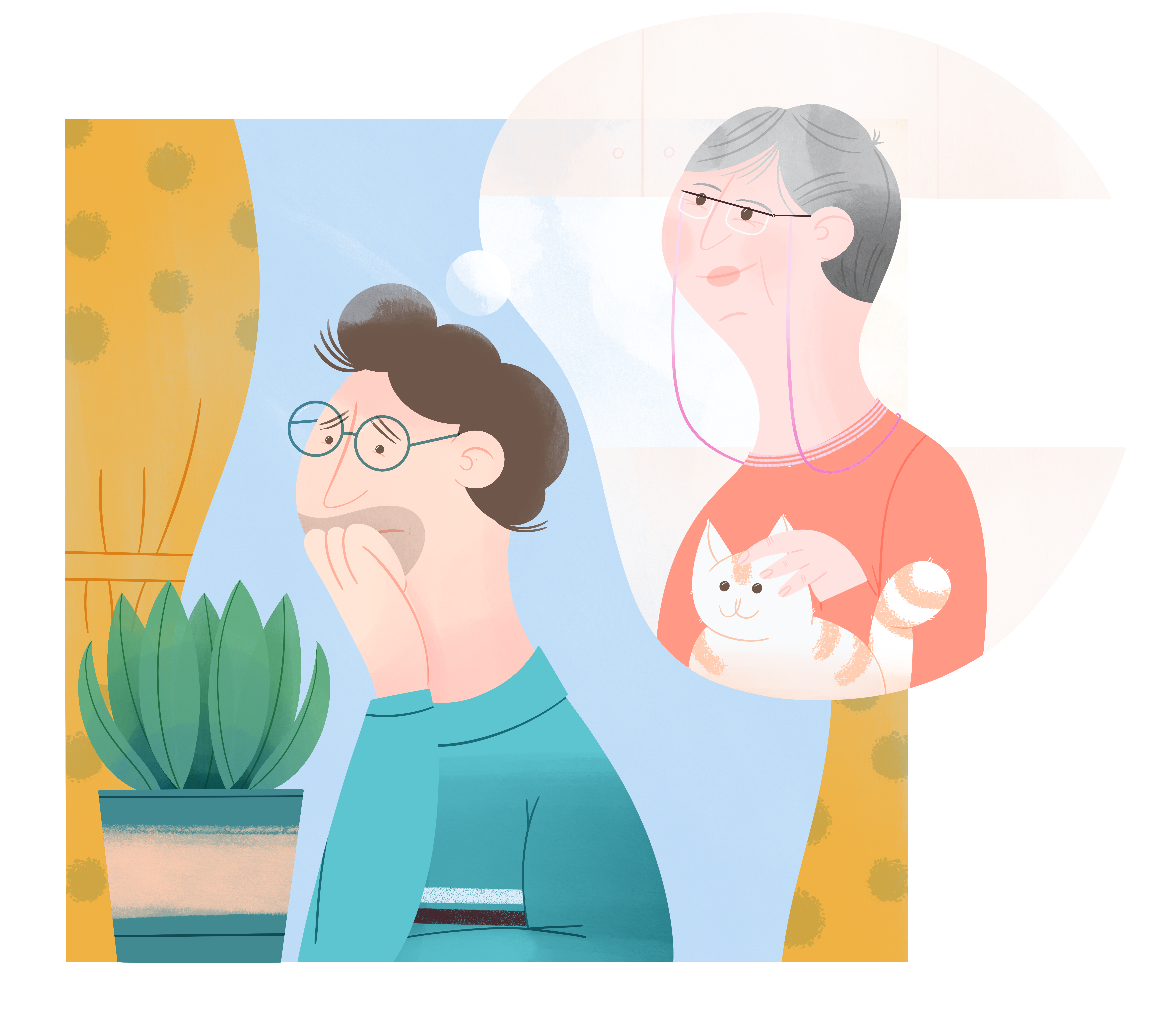Are you a caregiver of someone dealing with cancer?
Here is information on cancer(s) and tips to help you. In addition, there are references to literature and podcasts to help you cope with cancer together.

Ideally, the term cancer should be referred to in the plural form: there are approximately 200 types of cancer. The phenomenon that causes cancer is related to an uncontrolled multiplication of cells in a tissue or organ of the human body. This leads to the appearance of a mass called a “tumour,” which may be benign or malignant. A cancer can develop, for example, in the prostate, breast or lung.
When we talk about cancer, in the singular, we want to refer more to the element against which we are fighting. Behind “the” cancer, there are multiple realities experienced by those affected, their caregivers, their family and friends, and many others.
This may well be what you will have to face as a caregiver supporting someone with cancer: conjugating the singular and the plural.
When sharing their knowledge and experiences, caregivers often speak of being thrust into a vocabulary that is unfamiliar to them and of the paradox of trying to keep certain cancer words at bay, so as to never have to face the reality they convey.
Has someone you care for been diagnosed with prostate cancer or breast cancer? Because you support this person, you want to use the language of one of the cancers and all those words suddenly take on a special meaning. At the same time, you try to avoid terms that offend and look for alternative words.
If words fail you:
What if you were to develop your own vocabulary for the caregiver of a person dealing with cancer? A vocabulary that welcomes the right to falter, to catch your breath, discouragement, fatigue and difficulty, along with words of care and compassion? A lexicon that reflects who you are, in simple terms, as a caregiver and as an individual?
Words fit life; they could help you. Read other people’s words of intimacy, fragility, and vulgarity in literature.
Some caregivers need to understand what is going on and anticipate the possible consequences of the disease. Access to accurate, precise, accessible and timely information is therefore essential.
There are numerous references that meet this need. Among them, L’Appui pour les proches aidants has a particular interest in the documentation services offered by the Quebec Cancer Foundation. The Info-cancer Library has extensive documentary resources on all facets of cancer:
Nowadays, many cancers can be treated and brought into remission. A benign tumour is not cancerous and rarely threatens the life of the person affected. It can be removed and the person cured without risk of recurrence. In the case of a malignant tumour, the cancer cells have the ability to spread to other tissues and organs, resulting in metastasis. Tumours are difficult to remove and the risk of recurrence is high.
Your support will evolve depending on the cancer treatments and the evolution of the disease, you become a caregiver for a person who has cancer with many challenges:
How do I prepare for those difficult days?
Listen to the comments of others who are like you, don’t be alone with what you are going through. Support and comfort are available: support groups, telephone peer matching with someone who has been through what you are going through, online support communities, and telephone helplines. Keep up to date with content developed for caregivers of people with cancer and equip yourself with guides designed for caregivers.
Which health care professionals will we come into contact with?
The CISSS de la Gaspésie has developed a site explaining the major steps and the role of professionals, such as the nurse navigator. If you are able to accompany the person you are caring for to medical appointments, be sure to have your questions ready for the health care professionals.
I am in a relationship with the person I am caring for and cancer is taking over our relationship. What can I do about it?
Here are some love, sex and cancer tips from caregiver-lovers. Maintaining an active sex life is important to you, but it’s not always possible. The best thing is to be able to talk about what you are experiencing together.
The diagnosis is fatal. How can I prepare myself for the mourning process and the aftermath?
Paradoxically, throughout your caregiving journey, there is little preparation for thinking about death (in French only). The focus is on recovery and returning to normal life. Grief is a multitude of ups and downs. The Grief Line is available free of charge, 365 days a year, from 10 a.m. to 10 p.m. at 1 888 533-3845. Mondeuil.ca offers testimonials and resources. A Quebec directory of bereavement resources (in French only) is updated regularly.
Cancer 15-39 - Programme à Félix. Quoi dire? Quoi faire? Quand les mots vous manquent. Lorsque le cancer frappe chez les 15 à 39 ans.
Chaîne Youtube de Fondation québécoise du cancer. Programme à Félix -Je suis un proche.
Gouvernement du Québec. Cancer.
Le Devoir. Avoir un cancer, être en colère, l’écrire.
Le Devoir. Faut-il parler autrement du cancer?
Radio-Canada. Jardin radio : raconter sa maladie sans se trahir.
Sarah Bertrand-Savard. Les forces vitales.
Société canadienne du cancer. Cinq nouvelles statistiques sur l’impact changeant du cancer au Canada.
Société canadienne du cancer. Proches aidants.
The Guardian. 'War on cancer' metaphors may do harm, research shows.
Need to talk?
Contact our Caregiver Support Helpline for counselling, information and referrals.
Every day from 8 a.m. to 8 p.m.
Free of charge.